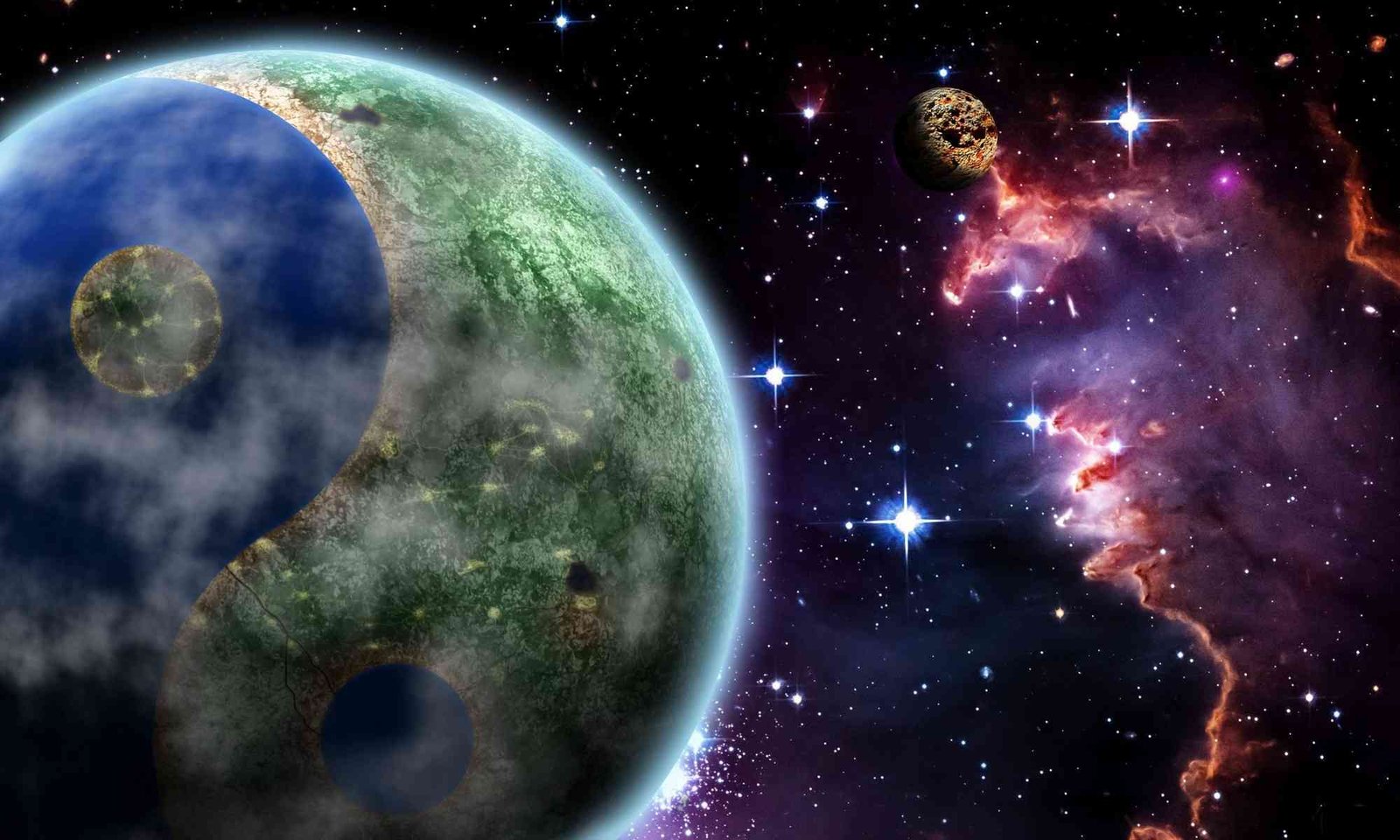The concept of cosmic balance intertwines scientific principles with philosophical reflections on existence. At its core, it refers to the equilibrium sustaining the universe, manifesting through interrelated physical laws and natural phenomena, ensuring stability across vast cosmic scales. In scientific terms, forces like gravity maintain cosmic structure, ensuring celestial bodies remain in stable motion, influencing planetary formations and interactions across galaxies.
- From a physics perspective, cosmic balance is evident in thermodynamic laws, governing energy conservation and distribution across the universe. As celestial systems evolve, they tend toward equilibrium, shaping galaxies and the lifecycle of stars.
- Beyond physics, many ancient cultures saw the cosmos as a reflection of balance, emphasizing interconnectedness in life. Eastern philosophies like Taoism present yin and yang as opposing forces creating harmony, while Greek thought viewed ‘cosmos’ as an ordered entirety contrasting with ‘chaos.’
Across disciplines, cosmic balance continues to offer insight into the structured beauty of existence, revealing an intricate dance of forces and ideas shaping reality, influencing scientific discovery, philosophical thought, and cultural beliefs throughout human history. It serves as a guiding principle in understanding the universe’s mechanics, while also inspiring artistic expression, ethical frameworks, and spiritual traditions that seek harmony within the vast cosmic order.
The Role of Forces in the Universe
Outer Space is governed by various fundamental forces that work together to maintain cosmic balance and stability. These forces – gravity, electromagnetism, and nuclear interactions – shape the formation and behavior of celestial bodies across the vast expanse of space.
- Gravity, the most prominent force, dictates the motion of planets, stars, and galaxies, ensuring they orbit and interact in a predictable manner. Its influence is crucial in maintaining the structural integrity of galaxies, which contain billions of stars held together within vast cosmic webs that stretch across The Universe.
- Electromagnetism, another fundamental force, regulates the interactions between charged particles. This force is crucial for the formation of atoms, which in turn enables the emergence of matter as we know it. The electromagnetic force is responsible for the boundaries of chemical reactions that contribute to the conditions necessary for life, such as those occurring on Earth. Without the balance maintained by electromagnetism, the very fabric of matter would be disrupted, hindering the universe’s ability to sustain life.
- Moreover, nuclear interactions, particularly the strong and weak nuclear forces, play significant roles within atomic nuclei. The strong nuclear force binds protons and neutrons together, overcoming their natural repulsion, while the weak nuclear force facilitates certain types of radioactive decay. Together, these forces not only govern the interactions within stars but also ensure the synthesis of heavier elements essential for cosmic phenomena.
In addition to these four classical forces, concepts such as dark matter and dark energy are integral to understanding cosmic balance on a grand scale. Dark matter, which does not emit light or energy, exerts gravitational effects on visible matter, while dark energy contributes to the accelerated expansion of the universe. This interplay of forces, including the unknown factors associated with dark matter and dark energy, underpins the intricate balance of the cosmos, allowing galaxies and solar systems to exist in harmony within the vast expanse of space.
Cosmic Balance in Human Life
Cosmic balance and Karma are deeply interconnected concepts found in various spiritual traditions. Karma, often described as the law of cause and effect, suggests that every action – whether positive or negative – creates consequences that shape future experiences. This principle reinforces the idea that the universe maintains a form of balance, ensuring that actions align with their outcomes over time.
In Hindu philosophy, karma is tied to dharma, or moral duty, maintaining cosmic order. It influences samsara – the cycle of birth, death, and rebirth – shaping future lives based on past actions. In Buddhism, karma guides spiritual growth, emphasizing mindfulness and ethical behavior to foster positive outcomes.
Beyond individual actions, karma is often seen as a universal force that governs fairness and justice. It encourages personal responsibility, urging individuals to act with integrity, compassion, and awareness. Some interpretations suggest that by living in alignment with one’s dharma, one can mitigate negative karma and contribute to a more harmonious existence.
The concept of cosmic balance extends beyond the vast expanses of the universe and infiltrates everyday human existence. Just as celestial bodies maintain their positions and movement through gravitational forces, individuals and societies are also influenced by the principles of balance in various aspects of life.
- One of the most profound ways this manifests is through mental and emotional well-being. Achieving emotional equilibrium can be likened to the balance found in nature; when individuals cultivate emotional intelligence, they improve not only their own quality of life but also that of those around them. This internal harmony promotes resilience against external chaotic influences, fostering healthier relationships, stronger communities, and a deeper sense of personal fulfillment in everyday life.
- Community harmony further reflects the principles of cosmic balance. Societies have long sought equilibrium through cooperation, fostering unity and understanding among diverse groups. Social movements that strive for equality and justice exemplify this effort, recognizing that a harmonious community is essential for collective well-being. Just as ecosystems thrive through biodiversity, communities flourish when differences are respected and valued, creating stability in social interactions.
- Ecological balance is equally vital in maintaining planetary harmony, resonating with cosmic balance. Human activity often disrupts this natural equilibrium, leading to environmental consequences that threaten sustainability. Embracing sustainable practices, such as reducing waste and conserving resources, aligns with cosmic principles and reinforces humanity’s role in preserving the planet’s health.
Cosmic Balance and Cosmic Horror
Cosmic Horror thrives on the fear that balance is either an illusion or indifferent to human concerns. The genre explores a vast, cold, incomprehensible universe governed by forces beyond human control. Unlike traditional horror, which presents tangible threats, cosmic horror unsettles by highlighting chaos on an overwhelming scale, rendering human efforts insignificant. This trepidation stems from realizing that humanity’s perceived order is fragile and attempts to impose meaning onto the cosmos may be futile. The universe isn’t necessarily malicious – just indifferent, operating on principles beyond human comprehension.
So, psychologically, cosmic horror taps into deep-seated fears of the unknown, powerlessness, and existential uncertainty. The dread it evokes is not just about terrifying creatures or supernatural phenomena but about the sheer insignificance of human life in an unfathomable cosmos. This tension between balance and horror forces individuals to confront their place in the universe – whether they find solace in cosmic order or terror in its vast indifference.
Future Insights and Implications of Cosmic Balance
The concept of cosmic balance serves as a vital framework as we delve into the future of cosmological studies and our understanding of the universe. Emerging theories in physics and cosmology suggest that the balance of forces across the universe may hold keys to unraveling mysteries yet to be discovered. These theories posit that various fundamental forces – gravitational, electromagnetic, and nuclear – interact and exemplify a grand equilibrium, shaping everything from stellar formations to the behavior of dark matter.
As we further investigate these relationships, the anticipation of discovering new forces or forms of balance becomes increasingly relevant. The implications of such discoveries stretch beyond theoretical references; they could redefine current paradigms in physics and expand our comprehension of the cosmic tapestry. For instance, the concept of multiverses and varying dimensions introduces exciting possibilities regarding the balance between different universes and their respective physical constants. Such discussions not only challenge conventional wisdom but also open avenues for innovative technologies harnessing these fundamental principles.
Moreover, the relevance of cosmic balance extends to tackling contemporary global challenges such as climate change and resource distribution. As humanity continues its foray into space exploration, understanding cosmic balance can enhance our approaches to sustainable development. For instance, by grasping how ecosystems and planetary systems maintain equilibrium, we might implement similar strategies on Earth, promoting harmony within our own environments. The insights gleaned from cosmic balance could also frame our ethical considerations regarding space exploration, urging us to protect potential extraterrestrial ecosystems.
What’s More
The posts in My Blog feature reflective, story-driven pieces rooted in personal and societal insights.
The topics in My Interests explore abstract, philosophical ideas and their cultural and societal impact.
👁️ 6,395 Views



















